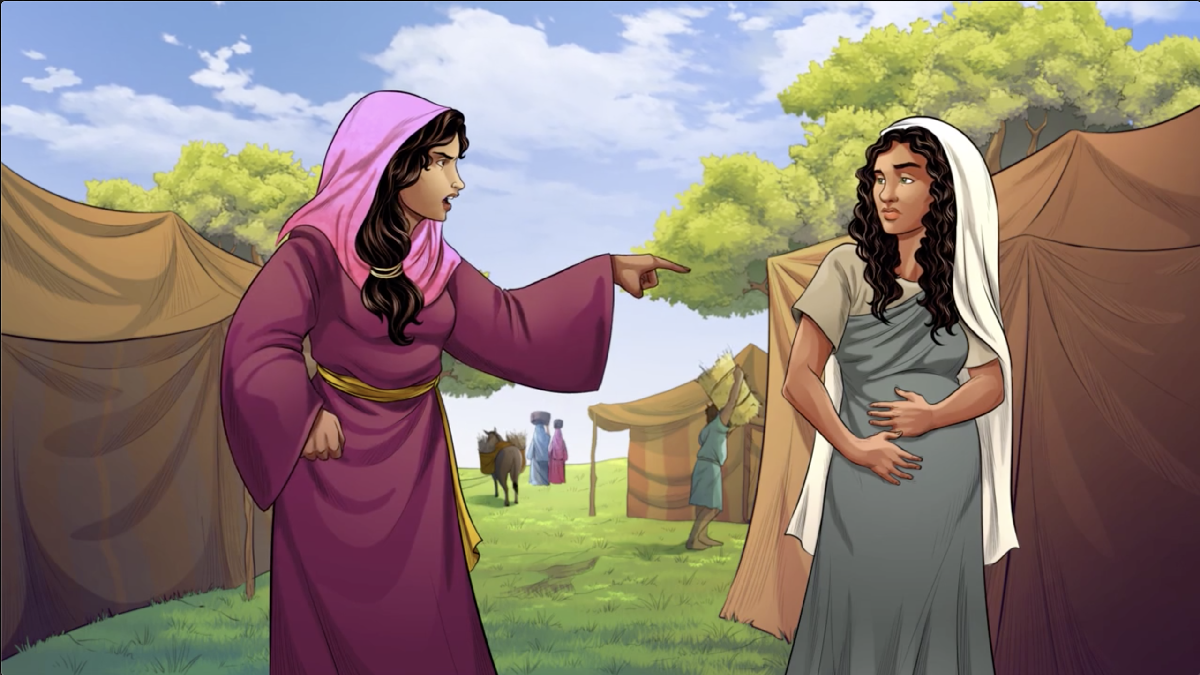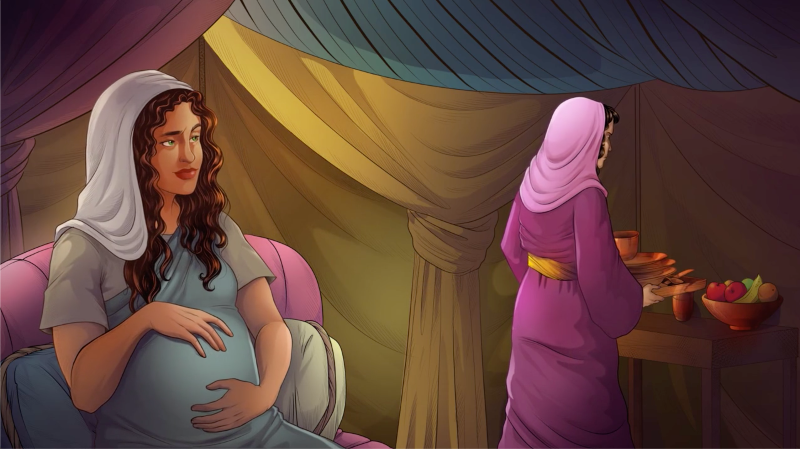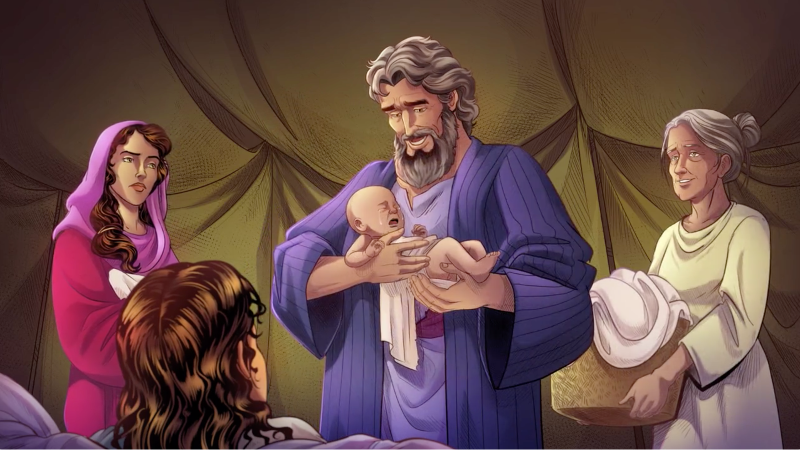Hagar: The Egyptian Servant (Part One)
Hagar: The Egyptian Servant (Part One)
Welcome to a behind-the-scenes look at the research and artwork that goes into making each scene of iBIBLE. Today, we look at Hagar.

It’s hard not to wonder what went through the minds of Abram and Sarai while they waited, year after year, for the son God had promised. How would God fulfill this promise? Every year Sarai advances in age, making it (humanly) less likely, or even impossible to bear a child. We know that at a certain point Sarai goes to Abram with a solution: she offers her servant Hagar as a surrogate mother:
Now Sarai, Abram’s wife, had borne him no children. She had a female Egyptian servant whose name was Hagar. And Sarai said to Abram, “Behold now, the Lord has prevented me from bearing children. Go in to my servant; it may be that I shall obtain children by her.” And Abram listened to the voice of Sarai. So, after Abram had lived ten years in the land of Canaan, Sarai, Abram’s wife, took Hagar the Egyptian, her servant, and gave her to Abram her husband as a wife. And he went into Hagar, and she conceived. —Gen. 16:1–4 [ESV]
We are not told how Hagar came to be the servant of Sarai. We do know that Abram and Sarai had previously spent time in Egypt, and that Pharaoh gave Abram many gifts including livestock and servants. Regardless of how it occurred, here is an Egyptian woman, a servant of Sarai, and she is now put into a situation beyond her control as a servant wife.
 Sarai offers Hagar as a surrogate mother to Abram
Sarai offers Hagar as a surrogate mother to Abram
Hagar does not have equal standing to Sarai, and now, she and Abram have conceived a child. This situation creates its own challenges.
And when [Hagar] saw that she had conceived, she looked with contempt on her mistress. And Sarai said to Abram, “May the wrong done to me be on you! I gave my servant to your embrace, and when she saw that she had conceived, she looked on me with contempt. May the Lord judge between you and me!” But Abram said to Sarai, “Behold, your servant is in your power; do to her as you please.” Then Sarai dealt harshly with her, and she fled from her. —Gen. 4b–6

Hagar looks in contempt at her mistress
 Sarai treats Hagar harshly
Sarai treats Hagar harshly
This harsh treatment at the hand of her mistress causes Hagar to flee. She is alone, pregnant, and on the run in the wilderness from the very people who should have cared for her while she carried her child. She feels that no one is looking out for her—that no one sees her. But then something happens:
The angel of the Lord found her by a spring of water in the wilderness…And he said, “Hagar, servant of Sarai, where have you come from and where are you going?” She said, “I am fleeing from my mistress Sarai.” The angel of the Lord said to her, “Return to your mistress and submit to her…I will surely multiply your offspring so that they cannot be numbered for multitude…Behold, you are pregnant and shall bear a son. You shall call his name Ishmael, because the Lord has listened to your affliction.” —Gen. 16:7-11, excerpted

Hagar meets the angel by the spring of water
The name “Ishmael” in Hebrew means “God hears.” The name shows Hagar that even though she feels alone, God hears, and is watching over her. She was not alone, and there was hope. Hagar confirms this by saying:
So she called the name of the Lord who spoke to her, “You are a God of seeing,” for she said, “Truly here I have seen him who looks after me.” —Gen. 16:13
Obeying the angel that appeared to her in the wilderness, Hagar returns to Abram and Sarai.

Hagar gives birth to Ishmael
We will look at the conclusion of Hagar’s story next week.
The entire Bible is filled with beautiful stories of God’s dealings with mankind. Either through grace and mercy, or through judgment, each story (or event) reveals the awesome and divine nature of God. These events transcend time, and as we study them, we further our understanding and deepen our fellowship with our Creator and His perfect plan to redeem and restore mankind!
iBIBLE is committed to highlighting the entire Biblical narrative, and when it is released, it will be freely available to the world. This is only made possible through the prayers and generous support of Christians around the world committed to help fulfill the Great Commission. Thank you for your support.





























